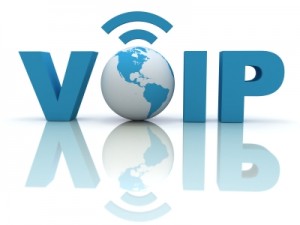
What are VoIP Servers?
VoIP is an abbreviation for Voice Over IP, ie. the transmission of voice over the Internet. A VoIP service, in essence, consists of a computer that can make phone calls anywhere in the world. It may be PC to PC or PC to phone, landline, or mobile. The voice signals are converted into data packets that travel over the Internet using a VoIP platform and then converted back into the recipient.
Using VoIP requires specific modules in the router or switch that have digital processors (DSPs). In this case, the router or switch is called as voice gateway.
The VoIP (Voice over IP) enables the Cisco gateway (router or switch) to carry voice traffic (for example, phone calls and faxes) over an IP network. Support for Cisco’s voice deployed using the technology of voice packets. In VoIP, the digital signal processor (DSP) segments the voice signal into frames and stores them in voice packets. These voice packets are transported over the IP network, by specific protocols such as H.323 ITU-T (International Telecommunications Union-Telecommunications), also used for transmission of video over the IP network. As this is a delay-sensitive application, it is necessary to use equipment that supports Quality of Service parameters (QoS) and a well-defined network design.
What type of equipment do I need?
To use VoIP services, you require a computer system along with Internet access and a microphone if your computer is not equipped with it. Although most VoIP providers and IP telephony connections require high-speed Internet, some can used on dialup connections as well.
How can I make or receive a phone call?
The same way you would a regular phone, except you use your PC or IP phone. When you use VoIP or Voice of an IP phone software on your computer, a phone usually appears on your screen. These telephones called SoftPhones and IP phones are called IPPhones or HardPhones.
The phone works on the computer like any other phone where you can dial numbers, or click the name of a contact pre-programmed, and press the call button. You will then hear the phone ring for the person you called and can then talk to him/her when you answer the call. When you receive a call, the phone will ring on your computer and you can click to accept the call and talk, or let ring (based on the number of rings you set) and route the call to voicemail or a forwarding number.
What type presents a VoIP Phone?
Typically a VoIP phone is not only capable of audio but also can used to maintain a contacts list, for caller ID, and call forwarding. Some IP phones even have webcam capabilities. The most popular VoIP software limits PC-to-PC calls to its subscribers in order not to compromise the sound quality.
Typically a VoIP phone is not only capable of audio but also can used to maintain a contacts list, for caller ID, and call forwarding. Some IP phones even have webcam capabilities. The most popular VoIP software limits PC-to-PC calls to its own subscribers in order not to compromise the sound quality.
Advantages of IP Telephony and VoIP Servers / Services
1. Calls from IP phone to IP phone are free. You can talk endlessly with someone with an IP phone without paying anything beyond your Internet connection.
2. IP telephony providers offer drastically reduced costs for telephone calls to IP phones.
3. The cost of IP phone calls to cell phones are below those of traditional carriers.
4. Save up to 80% on current phone bills.
What are the costs for VoIP’s?
There are several options for softphones that allow free calls between computers. There is also the option of signing additional services paid for calls to landlines and mobiles. You should be aware of the fees and compare them with those of other carriers. In the case of IP phones, you have the cost of equipment, but fares are generally cheaper and better service.
Care to Acquire VoIP Services :
1. Hidden costs
2. Lines unsafe – in some cases the conversations may heard by others. This happens due to shared servers or open platforms, thus making you vulnerable to viruses, worms, Trojan horses, and unscrupulous hackers, which ultimately can corrupt your computer and disable it.
3. The inability to use dial-up connections. Check with your provider to avoid headaches.
4. Public listing of your name and/or phone number in published catalogs on the World Wide Web.
5. Many VoIP services bring spyware, compromising their safety.